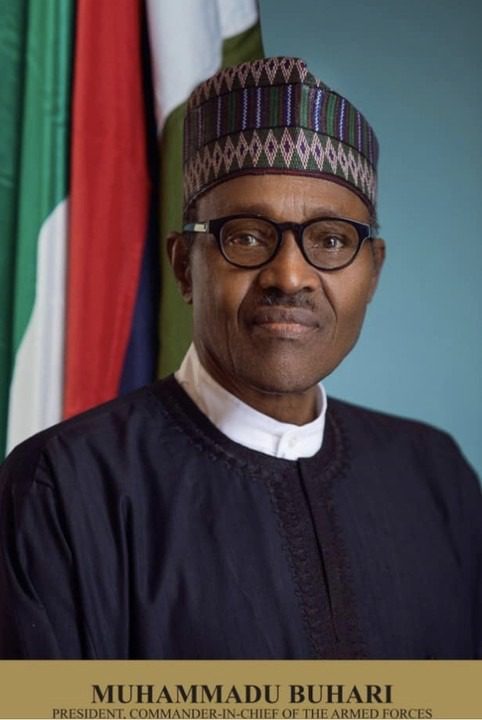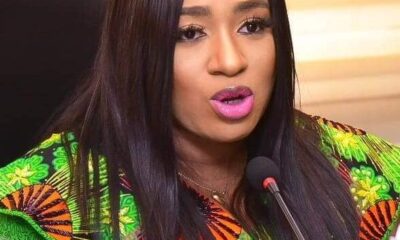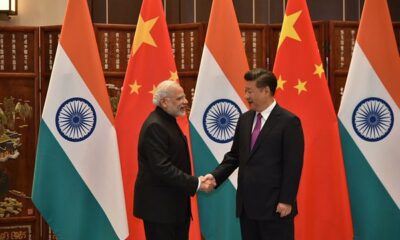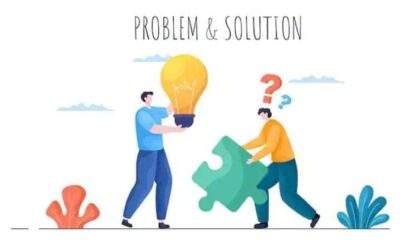Life And People
Buhari: The Devil That Hates Sin -By Olowolafe Dunnex

Being the one who toppled the first democratically-elected president of Nigeria after thirteen years of military rule, “Muhammadu Buhari” is a name that has registered deep in my memory right from my early schooling days as a primary five pupil who offered Current affairs otherwise known as General studies. A subject which can be said as the first formal introduction of my generation to matters of national significance.
Particularly, the lesson about past Nigerian leaders before and after independence brought my attention to the personality who truncated Nigerian’s first attempt at democracy. As at then, I could only give little interpretation to the act but I found it disturbing.
As I grew, I learnt more details about his stated reason for the coup d’état, events of his junta, and just like the pre-2015 elections, Buhari’s military takeover came with an impression of someone who was desperate to reform and reposition the rotten political establishment. He began with an appearance of fighting corruption and enforcing discipline in the Nigerian civic space. This, he started by jailing perceived corrupt elites and introducing rules to check public morals and orderliness. However, the irony of his radical change came with the suspension of the Nigerian constitution, just like every other military ruler before him, but his was a bit distinct with the enactment of two decrees, namely: Decree 2 and Decree 4. Decree 2 gave the state security and chief of staff the power to arrest individuals considered as security threat for six months without trial while Decree 4 forbade journalists from reporting information considered embarrassing to any government official and defaulters were liable to two years imprisonment without right to appeal. These draconian rules gave room for a wide scale attack on journalists, activists, critics, civil servants and other members of the Nigerian public which led to the arrest of many of them.
Despite the highhandedness of Buhari on issues of corruption and public morals, his administration was embroiled in a scandal of transporting a large number of suitcases with unknown contents from Dubai without interruption from the custom operatives at the airport. There was, at least, an expectation from the public for Buhari to exemplify his anti-corruption fight at that point but nothing happened. The above analysis summarizes the character of the Buhari-led junta before it was toppled by another military government in 1985 which led to his disappearance from the political space for a very long while until his reappearance in 1995 as the chairman of Petroleum Trust Fund, and later in 2003 when he started the journey to become Nigeria’s president.
While it is trite that every citizen, having fulfilled the electoral requirements, has the right to vote and be voted for, it struck me to see that someone with such antecedent of anti-democracy could still be seen contesting to become the leader of a democratic state. It led me to imagine what he would have done if Nigeria never found her way back to democratic rule. One would have thought Buhari’s return to politics will reflect a refined civilian but it didn’t take long before he revealed himself starting with rejection of the 2007 electoral results with just 18% of the vote against the 70% of the winner.
His participation in the subsequent elections was also laced with political statement that can be considered threatening to national security, albeit, the highlight of his political commentary was after the 2011 elections which he described as heavily-rigged despite being adjudged as one of the fairest in Nigeria and one of his statement read: “if what happened in 2011 should again happen in 2015 by the grace of God the dog and the baboon would all be soaked in blood”. Also, there are claims that he rejected the 2003 electoral polls and vowed not to recognize the elected government. These actions among many explain the democratic perspective and the political approach of Buhari and it could only have been tolerated under a government that respects political freedom and human rights.
However, the historical facts didn’t seem to matter to a larger percentage of the Nigerian electorates in 2015 since Nigeria was going through a multi-faceted political crisis and it needed anyone who could change the narrative, hence, the rebranding and launching of Buhari as a reformed democrat and anti-corruption crusader. Undoubtedly, the image rebranding was strategic to his emergence in 2015 which a lot of Nigerians assumed to be a final end to corruption and the beginning of national development. But, little did they know that history repeats itself twice; first as tragedy, second as farce, as said by the German philosopher, Karl Marx. So, these days, when I read about the gross disrespect for democratic rights, disobedience of court rules, repression of journalists and activists, crackdown on dissidents with state apparatus, especially with the recent social media regulation bill, all in the name of protecting National security, it leaves me with no surprises, but on a second hand, it disturbs me because Buhari might never have become a president if previous leaders had adopted his democratic standard, because if we are to go by his own standard, he is the greatest threat to National security that Nigeria ever had. Definitely, if Buhari happens to be a citizen under his own rule, it means he would have been tried countless times on charges of terrorism, treasonable felony and other-related counts with little chance of being released even if granted a bail.
Another insight to the irony of Buhari is his promise to end cut government cost by ending medical tourism, but since his emergence, he has never missed the first flight to London for medical treatment. All of these points clearly to the fact that Buhari does really detest those things he fights, he just detest them when he isn’t the doer, and the best way to conceptualize this irony is to think of the Devil that hates sin.
Olowolafe Dunnex,
Lagos.



















